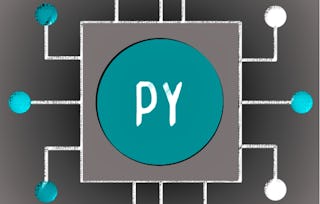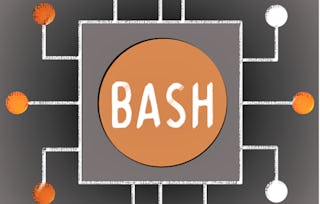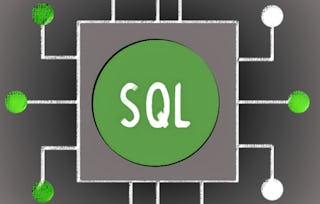In this fourth course of the Python, Bash and SQL Essentials for Data Engineering Specialization, you will build upon the data engineering concepts introduced in the first three courses to apply Python, Bash and SQL techniques in tackling real-world problems. First, we will dive deeper into leveraging Jupyter notebooks to create and deploy models for machine learning tasks. Then, we will explore how to use Python microservices to break up your data warehouse into small, portable solutions that can scale. Finally, you will build a powerful command-line tool to automate testing and quality control for publishing and sharing your tool with a data registry.

Web Applications and Command-Line Tools for Data Engineering

Web Applications and Command-Line Tools for Data Engineering
This course is part of Python, Bash and SQL Essentials for Data Engineering Specialization



Instructors: Noah Gift
Access provided by Abu Dhabi National Oil Company
5,016 already enrolled
41 reviews
Recommended experience
What you'll learn
Construct Python Microservices with FastAPI
Build a Command-Line Tool in Python using Click
Compare multiple ways to set up and use a Jupyter notebook
Skills you'll gain
Details to know

Add to your LinkedIn profile
17 assignments
See how employees at top companies are mastering in-demand skills

Build your subject-matter expertise
- Learn new concepts from industry experts
- Gain a foundational understanding of a subject or tool
- Develop job-relevant skills with hands-on projects
- Earn a shareable career certificate

There are 4 modules in this course
In this module, you will learn how to install and run Jupyter on your local machine. Additionally, you will explore strategies to use code and text cells in a Jupyter notebook.
What's included
8 videos5 readings1 assignment1 discussion prompt3 ungraded labs
In this module, you will learn how to create and use a Cloud-based notebook in Google Colab and AWS Sagemaker.
What's included
6 videos4 readings7 assignments1 ungraded lab
In this module, you will learn how to build a Python Microservice with FastAPI and deploy a containerized machine learning Microservice for data engineering.
What's included
11 videos7 readings4 assignments1 ungraded lab
In this module, you will learn how to organize a Python project so you can build a powerful command-line tool. You will use Click, a useful command-line tool framework to enhance your tool. Finally, you will automate testing and quality control for publishing and sharing your tool with a registry.
What's included
25 videos12 readings5 assignments5 ungraded labs
Earn a career certificate
Add this credential to your LinkedIn profile, resume, or CV. Share it on social media and in your performance review.
Offered by
Why people choose Coursera for their career

Felipe M.

Jennifer J.

Larry W.

Chaitanya A.
Learner reviews
- 5 stars
56.09%
- 4 stars
31.70%
- 3 stars
7.31%
- 2 stars
2.43%
- 1 star
2.43%
Showing 3 of 41
Reviewed on Feb 14, 2023
covered all the fundamentals can be little slower and detailed
Explore more from Information Technology

Duke University

Duke University

Duke University

